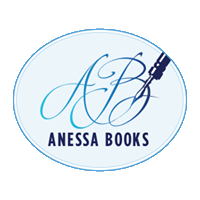 I spent way too many hours in the early part of this week playing with a new-to-me program. It’s called Notion and is
I spent way too many hours in the early part of this week playing with a new-to-me program. It’s called Notion and is
billed as a place where you can store and keep track of all your notes, calendar, writing, etc. It even has a timeline feature, which I definitely want to play with some more.
The problem with these solve-it-all programs is that there is always something wrong with them. They are never just right. So far, I have not managed to find the Goldilocks of organizational systems—and I’ve tried a lot of them!
When I first started writing, I went with the paper solution. I have binders filled with notes. I printed out loads of worksheets which I filled in by hand. This system worked… and it worked well. I still use it on occasion and I recently ran into one serious problem with it—what if you don’t know where you wrote down an idea? Or even if you do know where you wrote it down, and you’re like me and far from so much of your work. (Yes, I wrote down my plans for my next series on paper in a notebook and it is sitting in my office in Kyiv. Not very helpful to me now when I’d have to risk my life to get there.)
I’ve also tried Scrivener—which many authors absolutely swear by. It’s a great and powerful program (a little like the Wizard of Oz – only he was great and powerful because he said so, not because he actually was). Scrivener really is great and powerful. Perhaps too powerful? People take weeks-long courses to learn how to use that program, buy books, and even then few use most of what it has to offer.
Other options for organization include digital notebooks like OneNote and Evernote where you can import Word documents, create your own lists and organize your files in any way you’d like.
Plottr is terrific for not only plotting your novel with its ingenious time line, but it has tabs for characters, places, and just ordinary notes.
And finally, there is the program I was fooling with earlier this week, Notion, with is similar to a digital notebook only it has templates you can use (although, of course, none for writers – and while I thought of putting a few together it really would have taken too much of time to make it look nice). But again, there were limitations to the program which were annoying little ticks. It ended up not being worth my time to figure it all out and how to work around these.
So, people, what do you use to organize your writing, character sheets, plotting, research notes and whatever else you use to write a novel?
I’m going back to my old way of a combination of my own worksheets (sometimes in physical form, sometimes digital), a plottr file, and a few Microsoft Word documents all kept together in a folder on my computer along with a physical notebook on the side where I can jot down notes (because I do really like writing long-hand sometimes).
If you’d come up with a great solution, please tell me about it!

This is such a familiar problem!
For me, handwritten notes are the least desirable because my handwriting, never good, gets less decipherable every year, and I tend to make notations like phone numbers on the back of envelopes. Some day maybe I’ll get structured enough to at least enter that info into contacts. things to do or my calendar directly.
I’ve set up bunches of notebooks over the years and some of them I actively use, but most I don’t. I do print out my books in their final form for reference.
Word is my most useful “system” I keep lists in Word and update them pretty well, and have files for my books, etc. I get lost sometimes, tho’. When my computer stopped working last May, I thought I’d lost all sorts of stuff, but autosave and the Cloud
saved the day.
So, for me, a combination of electronic files and real paper applies too, with many envelope flaps(!) as well.
Thanks for commenting, Carolyn! Yes, a combination of written and electronic notes is perfect — although, clearly you’ve figured it out that you’ve got to back up your computer regularly (I use BackBlaze which is always backing up my computer behind the scenes so I don’t have to remember to do so).